"The Other Hundred" is a unique photo book project aimed as a counterpoint to the Forbes 100 and other media rich lists by telling the stories of people around the world who are not rich but whose lives, struggles and achievements deserve to be celebrated. Its 100 photo stories move beyond the stereotypes and clichés that fill so much of the world's media to explore the lives of people whose aspirations and achievements are at least as noteworthy as any member of the world's richest 1 percent.
Monrovia, LiberiaPhotographer: Andrew EsieboLike many Liberians, Mercy Womeh, 18, missed several years of education as a result of her country’s civil wars of 1989-96 and 1999-2003. Three years ago, in search of work, her family moved from the countryside to a suburb of Monrovia, the country’s capital. Mercy is now catching up with her schooling.
She could go to a free state school, but with overcrowded classes, staff shortages and teachers who often fail to show up, she has opted for a private school.
“Yes, the education is free at state schools,” she says. “But there are charges like paying for pamphlets and tests, so it is almost as if you are paying. If you don’t have money, you have to drop out.”
To complete her last two years of schooling, Mercy has enrolled at J Chauncey Goodridge school, where she is now in seventh grade. She earns the money for her fees by crushing rocks.
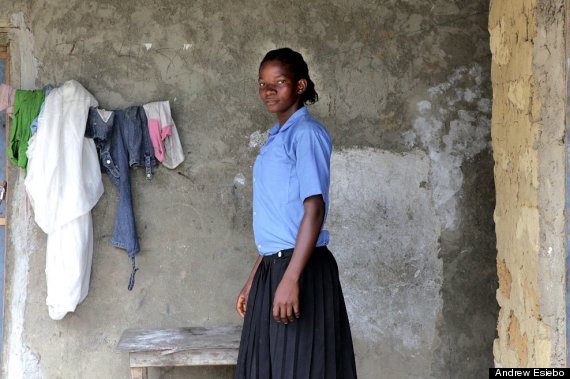 Before Mercy’s family moved to Monrovia, none of the children attended school.
Before Mercy’s family moved to Monrovia, none of the children attended school.
“My parents didn’t have the money to send my brothers and I to school when we lived in the village. They were farmers and I used to help them by driving the birds away from the rice and then beating the rice when it was harvested. I’m happy that my father was able to relocate us to the city to get a better education.”
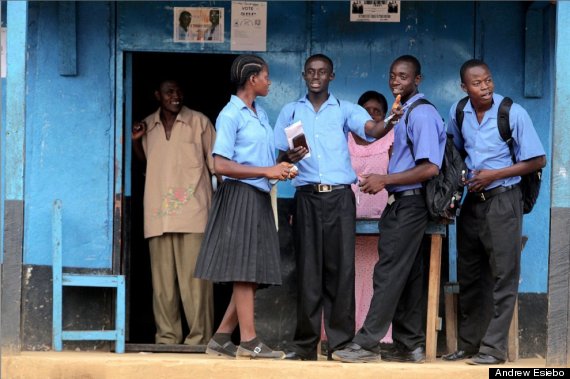
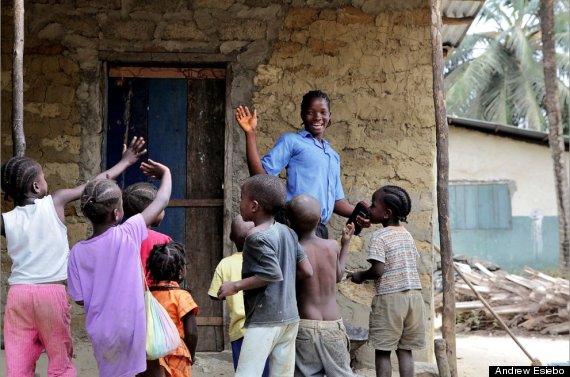
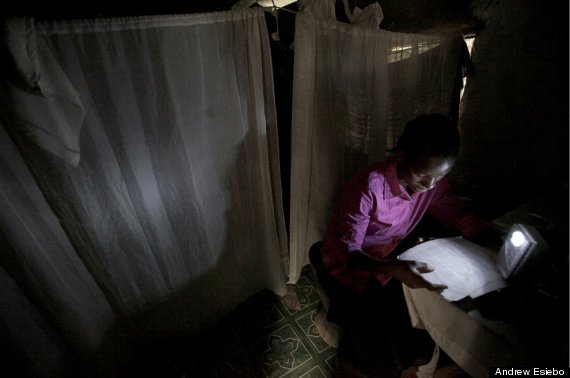 Mercy believes getting an education will transform her life: “When you graduate from high school, you understand things that people who did not go to school cannot understand. The way you speak will be different and you will be able to make decisions that will benefit you and your family. If you are not educated, you are like a tea without sugar.”
Mercy believes getting an education will transform her life: “When you graduate from high school, you understand things that people who did not go to school cannot understand. The way you speak will be different and you will be able to make decisions that will benefit you and your family. If you are not educated, you are like a tea without sugar.”
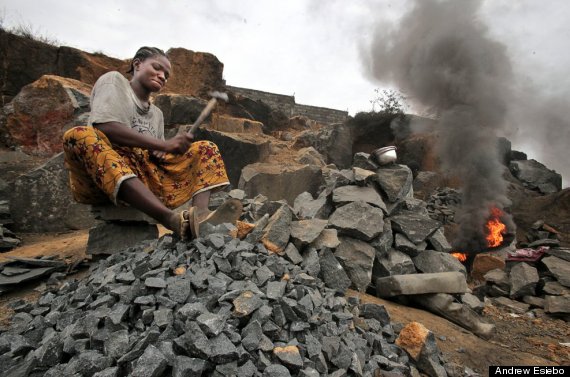
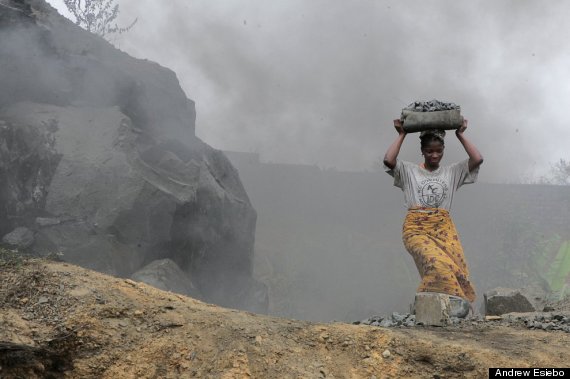
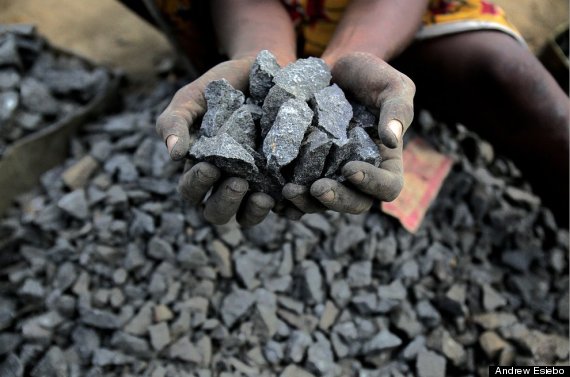 The stones Mercy crushes are used in Liberia’s booming construction industry, but little of the country’s economic growth trickles down to people like her. Although Liberia’s economy has grown strongly in recent years, eight out of 10 Liberians still live on less than U.S. $1.25 a day.
The stones Mercy crushes are used in Liberia’s booming construction industry, but little of the country’s economic growth trickles down to people like her. Although Liberia’s economy has grown strongly in recent years, eight out of 10 Liberians still live on less than U.S. $1.25 a day.
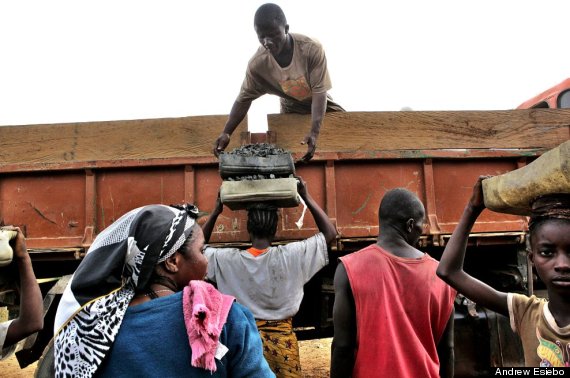
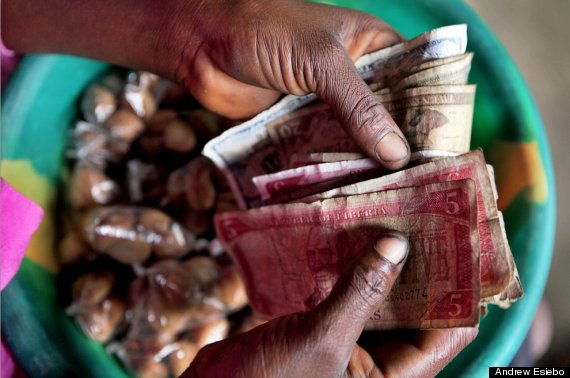 For each bucket she fills, Mercy earns 35 Liberian dollars –- about U.S. $0.50. On a good day, she can fill seven buckets.
For each bucket she fills, Mercy earns 35 Liberian dollars –- about U.S. $0.50. On a good day, she can fill seven buckets.
“How many years I have left in school depends on whether I have the money to continue,” she says.
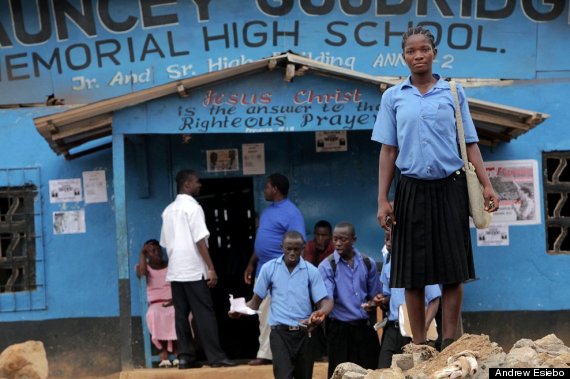
More from "The Other Hundred"
